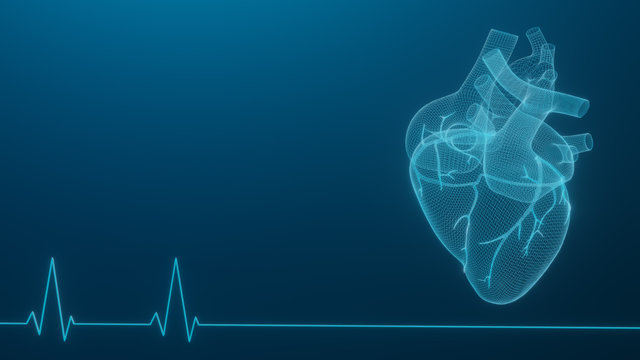Comprehending the Value of Cardiology in Modern Medical Care Providers
Cardiology plays a vital role in modern healthcare, specifically as heart problem proceeds to be the leading source of death worldwide. Advancements in diagnostics and treatment have changed patient care, enabling earlier interventions and enhanced outcomes. The shift in the direction of precautionary cardiology equips people to handle their wellness proactively. As technology proceeds to advance, the integration of innovative services may better redefine cardiology's effect on public health, prompting a more detailed examination of arising fads and their effects.
The Frequency of Heart Problem and Its Effect On Public Health
Heart illness continues to be the leading reason of death around the world, its influence extends much beyond specific patients to affect public health and wellness systems and economies. The high prevalence of heart disease puts a substantial stress on health care resources, requiring raised funding for avoidance, treatment, and rehabilitation programs. Public health and wellness efforts need to resolve threat aspects such as weight problems, cigarette smoking, and less active way of livings, which add substantially to the rising occurrence of heart conditions.Moreover, the economic problem connected with heart problem is tremendous, encompassing not only direct clinical prices but likewise indirect expenditures related to shed efficiency and premature mortality. Neighborhoods encounter obstacles in handling these prices, usually leading to variations in health care accessibility and end results. As the populace ages and lifestyle-related dangers continue to rise, the urgency for reliable cardiology interventions comes to be vital. Resolving heart illness is not only an issue of specific health and wellness however also an essential public health and wellness priority.
Advancements in Heart Diagnostics and Imaging Techniques
Recent advancements in heart diagnostics and imaging methods have reinvented the area of cardiology, boosting the ability to keep track of and detect heart diseases. Methods such as cardiac MRI, CT angiography, and echocardiography have actually ended up being increasingly sophisticated, supplying in-depth pictures of heart structures and functions. These techniques enable the early identification of problems like coronary artery illness, cardiac arrest, and valvular disorders.Moreover, developments in non-invasive diagnostics, such as wearable innovation and remote monitoring devices, have encouraged clients and doctor. These devices assist in real-time monitoring of heart rhythms and various other crucial indications, resulting in prompt interventions. Furthermore, expert system is being incorporated into imaging analysis, enhancing accuracy and effectiveness in diagnosis.
Innovations in Treatment Options for Heart Conditions
Current advancements in cardiology have caused substantial developments in therapy options for heart disease. These consist of innovative medical strategies that improve step-by-step outcomes and arising drugs that use new methods for therapy. As the field evolves, these technologies play a crucial duty in improving individual care and end results.
Advanced Surgical Techniques
Technologies in medical techniques have transformed the landscape of cardiology, using brand-new wish for individuals with heart disease. Minimally invasive procedures, such as catheter-based interventions, have actually considerably decreased healing times and hospital remains. Methods like robotic-assisted surgery boost accuracy, allowing specialists to browse intricate physiological frameworks with higher accuracy. Furthermore, advancements in imaging technology help with real-time visualization during treatments, boosting outcomes. Transcatheter aortic shutoff substitute (TAVR) exhibits an advancement in treating aortic stenosis, allowing valve replacement without open-heart surgery. In addition, hybrid strategies that integrate medical and catheter-based techniques supply customized options for various heart concerns. These advanced surgical techniques not just enhance client safety and security however also expand therapy alternatives, underscoring the important duty of development in contemporary cardiology methods.
Emerging Medicines and Treatments
As the landscape of cardiology proceeds to evolve, arising medicines and treatments play an essential role in enhancing therapy alternatives for heart problems. Advancements such as novel anticoagulants and advanced lipid-lowering representatives have transformed the management of cardiovascular diseases, considerably lowering individual morbidity and death. Furthermore, the advancement of gene treatments and regenerative medication provides encouraging methods for dealing with problems formerly deemed incurable. Professional tests are consistently revealing the efficacy of these treatments, pressing the boundaries of standard therapies. The combination of digital wellness modern technologies assists in individualized medication, permitting for tailored treatment strategies based on hereditary and way of life aspects. Jointly, these advancements emphasize the vibrant nature of cardiology, boosting patient results and redefining requirements of treatment in modern healthcare.
The Duty of Preventive Cardiology in Individual Care
Preventative cardiology plays a crucial duty in person treatment by concentrating on the identification of danger elements that contribute to heart disease. Via lifestyle alteration strategies and very early detection strategies, doctor can successfully reduce the incidence of cardiovascular events - Dr Garcia. This proactive strategy not only enhances person outcomes however likewise advertises long-term health and wellness
Danger Aspect Recognition
While heart diseases stay a leading root cause of morbidity and mortality worldwide, reliable risk factor identification functions as a foundation of precautionary cardiology. Identifying danger elements such as high blood pressure, family members, diabetes, and hyperlipidemia history is important for early treatment. Medical care specialists use numerous screening methods to examine these variables, permitting customized precautionary measures. Furthermore, recognizing a client's lifestyle selections, such as cigarette smoking and physical inactivity, additionally notifies risk analyses. This thorough assessment allows clinicians to develop personalized treatment plans intended at mitigating risks. By prioritizing risk variable recognition, healthcare systems can enhance person outcomes and reduce the general burden of heart diseases, inevitably contributing to enhanced public health methods and resource allowance.
Way Of Living Alteration Strategies
A plethora of studies highlights the vital role of way of life alteration strategies in minimizing heart disease risk. These techniques include nutritional adjustments, raised exercise, smoking cigarettes cessation, and weight administration. By embracing a heart-healthy diet regimen rich in fruits, vegetables, whole grains, and lean proteins, individuals can decrease cholesterol degrees and blood pressure. Normal exercise reinforces the heart and enhances overall cardiovascular wellness. Additionally, quitting smoking cigarettes considerably reduces the threat of heart condition and enhances recovery rates for those with status quo. Weight management additionally contributes to cardio health and wellness by mitigating various other threat variables such as diabetes mellitus and hypertension. Applying these way of living changes not only advertises private well-being yet also acts as a keystone of preventative cardiology in patient treatment.
Very Early Detection Strategies
Lifestyle modifications substantially add to lowering heart disease dangers, but they are most effective when combined with early discovery methods. Preventive cardiology highlights the importance of recognizing prospective heart problems before they rise into major conditions. Strategies such as high blood pressure monitoring, cholesterol screening, and advanced imaging innovations like echocardiograms play crucial duties in examining cardio health and wellness. Biomarkers and hereditary screening also enhance the precision of early detection, enabling customized precautionary strategies. Regular cardiac threat evaluations equip doctor to intervene proactively, possibly protecting against cardiac arrest and strokes (Cardiology Jupiter). By incorporating these early detection approaches right into routine care, patients can gain from prompt way of life treatments and targeted therapies, inevitably improving outcomes and improving lifestyle
Integrating Modern Technology Into Cardiology Practices
As innovations in technology continue to improve numerous areas, the integration of ingenious tools and systems into cardiology techniques has come to be essential for boosting patient treatment and end results. Telemedicine systems permit cardiologists to monitor clients remotely, enhancing access to care while decreasing the burden on healthcare centers. Wearable gadgets, such as smartwatches, enable constant heart rate monitoring, signaling both patients and doctors to possible problems in real-time. Furthermore, expert system (AI) is being used to analyze vast quantities of cardiac information, assisting in very early diagnosis and tailored treatment strategies. Advanced imaging techniques, consisting of 3D go to this web-site echocardiography, enhance visualization of heart frameworks, bring about a lot more specific interventions. Digital health documents (EHRs) improve person details management, making certain that cardiologists have instant access to crucial data. Together, these technological innovations are changing cardiology, promoting positive monitoring and boosted health outcomes for individuals with cardio conditions.
The Value of Patient Education And Learning and Involvement
Person education and involvement play a pivotal duty in the management of cardio wellness. By outfitting patients with knowledge regarding their problems, treatment alternatives, and way of life changes, healthcare suppliers empower individuals to take an active function in their treatment. This positive strategy can cause improved adherence to prescribed medicines, dietary adjustments, and exercise programs, ultimately minimizing the danger of complications.Engagement also fosters a solid patient-provider partnership, encouraging open interaction and count on. When people feel informed and involved, they are more probable to voice issues and ask concerns, which can bring about far better medical results. In addition, instructional sources, such as workshops or electronic systems, can my link boost understanding and advertise self-management strategies. Generally, prioritizing client education and interaction is necessary for boosting cardio wellness, boosting lifestyle, and lowering medical care prices linked with cardio illness.
Future Patterns in Cardiology and Their Prospective Effect

Regularly Asked Concerns
What Way Of Life Changes Can Reduce Cardiovascular Disease Threat?
The present question addresses lifestyle adjustments that can considerably decrease heart problem threat. Cardiologist near me. Taking on a balanced diet, taking part in routine exercise, keeping a healthy weight, managing stress and anxiety, and preventing tobacco can especially improve cardio health and wellness
How Can I Acknowledge Early Indicators of Heart Issues?
Identifying early signs of heart troubles includes surveillance signs such as upper body pain, lack of breath, tiredness, and uneven heartbeat. Prompt awareness of these signs can prompt needed medical examination and intervention for much better end results.
What Are the Differences In Between Cardiologists and Cardiac Surgeons?
The differences between cardiologists and cardiac doctors hinge on their duties; cardiologists primarily handle and detect heart disease with non-invasive approaches, while cardiac cosmetic surgeons execute surgeries to remedy architectural heart issues. Each plays a crucial, distinctive role.

Just how Commonly Should I Obtain My Heart Health And Wellness Checked?
The frequency of heart health checks differs based on individual threat variables. Normally, adults should undertake assessments every one to 2 years, while those with status quo might need even more regular assessments as advised by medical care experts.
What Role Does Genes Play in Heart Problem Threat?
Genetics considerably influences heart problem threat, with familial patterns showing inherited conditions. Specific genetics can incline people to hypertension, cholesterol issues, and other cardiovascular problems, highlighting the importance of genetic testing in examining heart health. Heart illness remains the leading cause of fatality worldwide, its influence prolongs much beyond More Info private people to impact public wellness systems and economies. Public wellness initiatives should resolve risk aspects such as obesity, smoking cigarettes, and sedentary way of lives, which add greatly to the increasing occurrence of heart conditions.Moreover, the financial concern connected with heart condition is immense, including not just straight clinical costs however additionally indirect expenditures related to lost efficiency and early death. Preventative cardiology plays an important function in person treatment by focusing on the identification of risk elements that add to heart condition. Fabricated knowledge (AI) and machine knowing are improving diagnostics and individual tracking, making it possible for very early discovery of heart conditions. The distinctions in between cardiologists and heart doctors exist in their duties; cardiologists primarily manage and diagnose heart problems via non-invasive approaches, while heart doctors execute medical treatments to remedy architectural heart problems.